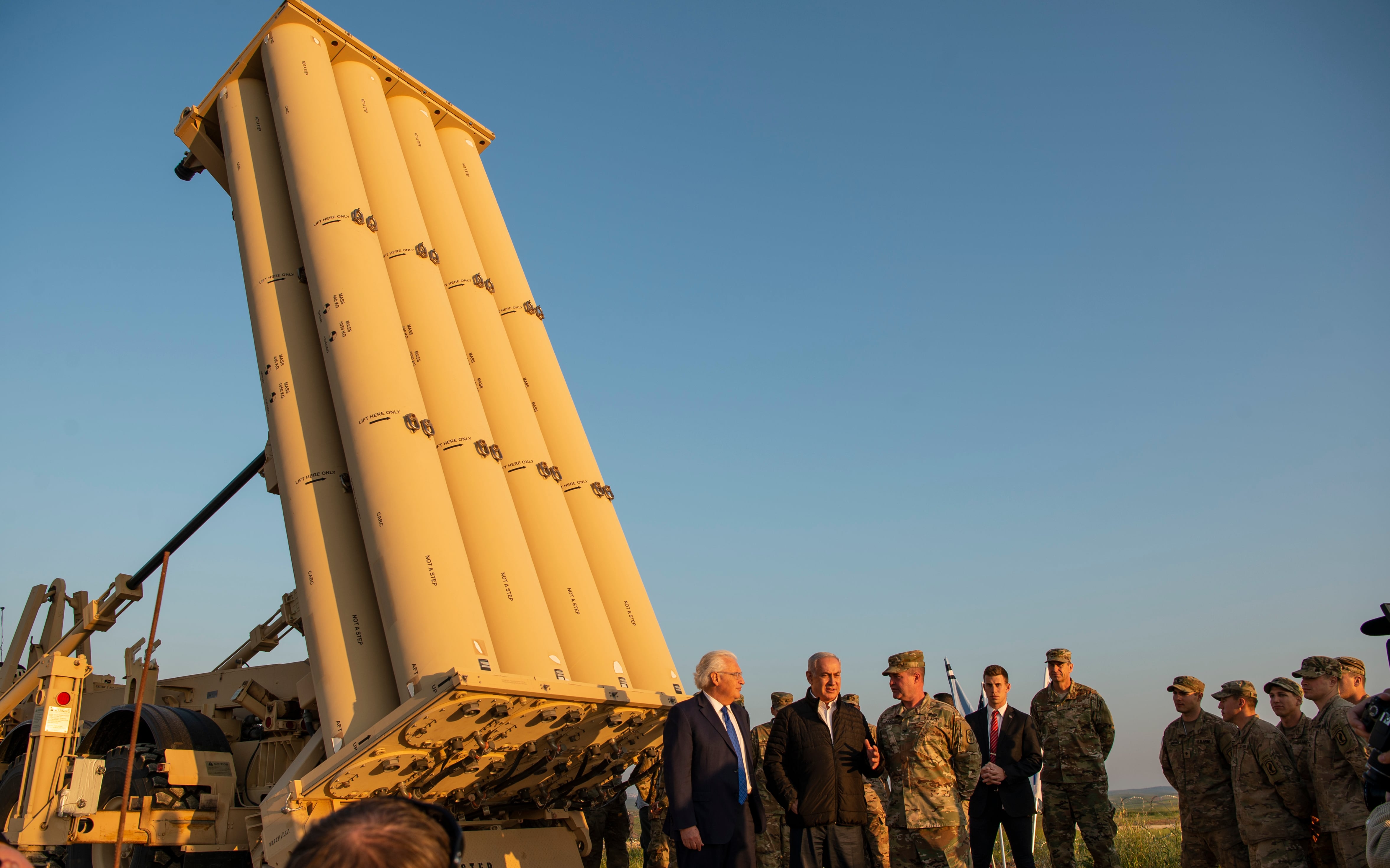WASHINGTON ― In the wake of recent missile and drone attacks against the United Arab Emirates by Iranian-backed Houthi rebels, there’s a fresh opportunity to integrate air and missile defense in the Middle East, the nominee to lead U.S. Central Command told lawmakers Tuesday.
Both Israel’s recent incorporation into Central Command’s area of responsibility and its newly normalized relations with Bahrain and the UAE offer possibilities for regional security cooperation against Iran and its proxies, according to Army Lt. Gen. Michael Kurilla. That cooperation could focus on cybersecurity and missile defense capabilities.
“That’s probably the area with some of the greatest opportunity: working toward an integrated air and missile defense. I think the addition of Israel ... will help with that,” said Kurilla, who currently leads the 18th Airborne Corps and is likely to be confirmed in the coming days. “We are collectively stronger together, and there are areas where each one brings unique capabilities.”
Negotiations were underway for the sale of Israel’s Iron Dome missile defense system (which the U.S. co-developed) to the UAE, Israel’s Channel 13 news reported last week. While neither Kurilla nor lawmakers confirmed that at Tuesday’s hearing, Kurilla said Israel has the ability to “do some partnerships in terms of increasing the capability” of others to defend against attacks.
Kurilla also touted the system’s 90% interception rate during U.S. Army testing for its own adoption.
RELATED

Still, the U.S. is not the only country deepening its Mideast ties. Among lawmakers who warned of China’s growing sway with America’s Middle Eastern partners, Sen. Kristen Gillibrand, D-N.Y., noted that Saudi Arabia has bought Chinese ballistic missiles and makes its own ballistic weapons using Chinese technology.
To that, Kurilla said he is worried about China’s expanding tech partnerships, noting that three of the top countries purchasing Chinese drones are in the Mideast and that five countries there have forged agreements with Chinese telecom firm Huawei. “I am very concerned with China’s military involvement [and] these agreements,” he said.
The testimony came days after the U.S. military launched Patriot interceptor missiles during an attack by Iranian-backed Houthis that targeted the UAE ― reflecting widening American involvement in Yemen’s yearslong war, despite U.S. President Joe Biden declaring nearly a year ago the war “has to end.”
While the U.S. has ended offensive support to the Saudi-led coalition fighting on behalf of Yemen’s exiled government, its involvement in defending the UAE comes as the Houthis declared Al Dhafra Air Base in Abu Dhabi a target. Al Dhafra hosts some 2,000 American troops and has served as a major base of operations for everything from armed drones to F-35 stealth fighters.
Asked about the origin of Houthi missiles, Kurilla said they are funded by Iran but that he could not say definitively whether the Houthis intended to target American troops.
Highlighting those attacks, Republicans at the hearing criticized the Biden administration’s efforts to revive the 2015 Iran nuclear deal, which then-President Donald Trump abandoned in 2018. The Biden administration recently eased some sanctions against Iran to help advance talks with the government.
In an exchange with the Senate Armed Services Committee’s ranking member, Sen. Jim Inhofe, R-Okla., Kurilla acknowledged that lifting economic pressure on Iran carries the risk “that Iran would use some of that money to support its proxies and terrorism in the region. And if they did, it could increase risk to our forces in the region.”
Kurilla would replace retiring Marine Gen. Frank McKenzie, who oversaw the final days of the war in Afghanistan. Kurilla previously commanded the 82nd Airborne Division and served as CENTCOM’s chief of staff.
McKenzie reportedly warned last week that Iran has spent several years growing its ballistic missile stockpile along with fleets of drones and land-attack cruise missiles.
“For the last five to seven years, Iran has relentlessly built its theater ballistic missile capabilities. These are surface-to-surface missiles that have ranges that can go as far as Israel, for some of their missiles,” McKenzie reportedly said. “But they have several thousands of these missiles, and they have assiduously cultivated this force … even at the fact of starving their own people to ensure that the engineers, the factories that generate these missiles, have the resources they need to do it.”
In an exchange with Sen. Mazie Hirono, D-Hawaii, Kurilla said that when the U.S. exposes “the Iranian hand” behind militant groups in the region, it can deter Iran’s actions for a time.
“Iranian aligned militia groups that are either firing rockets at our embassy in Iraq, they’re firing at our troops inside of Syria, they support the Houthis, and they’re providing that technology to them to fire ballistic missiles into the UAE and into Saudi Arabia,” Kurilla said.
Sen. Tom Cotton, R-Ark., told Kurilla he thinks missile defense “would be one of the most urgent priorities you face, as far as making sure that we have the resources we need, but also working with our partners to help them.”
“As Iran is emboldened, I don’t think it’s going to decrease,” Cotton said of missile attacks. “I think it’s going to increase.”
The Associated Press contributed to this report.
Joe Gould was the senior Pentagon reporter for Defense News, covering the intersection of national security policy, politics and the defense industry. He had previously served as Congress reporter.








